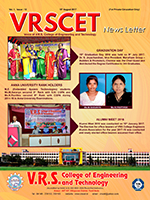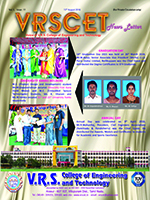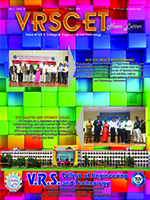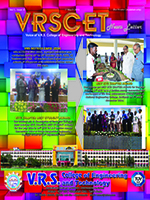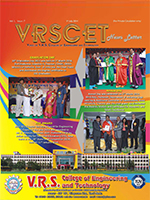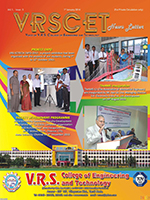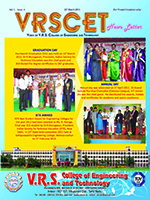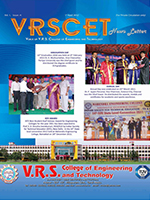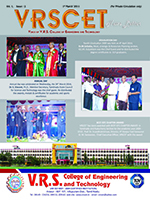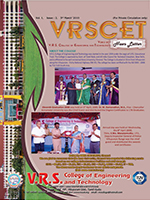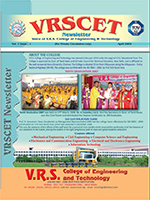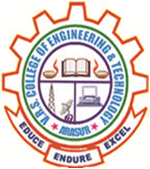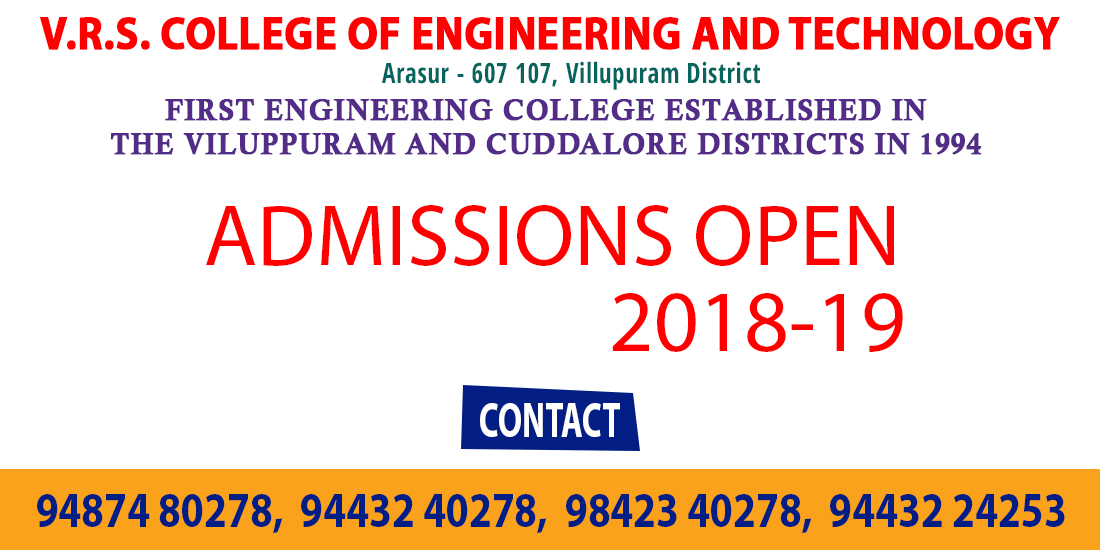-
DEPARTMENT PROFILE The P.G Course M.E Embedded System Technologies (under the control of department of Electrical and Electronics) was started in the academic year 2011-2012 with a sanctioned intake of 18 students. The department is functioning with sophisticated laboratory facilities. Standard Software Packages like MATLAB, AU Power Lab, Embedded System Software such as CCS Compiler, MP lab IDE, and IAR work bench for ARM &PIC and NS2 Simulator. In its continuing effort of producing world-class power engineers, it has produced about 25 post graduates so far. The post graduates are produced for the development of the nation. The students of this department are enlightened, in the field of Embedded systems by full- fledged faculty members. Faculty members are always helpful for the students to participate in symposia, facing interviews and appearing for competitive examination, in carrying out project work, presenting paper in national and international conferences & reputed international Journals. The faculty members are enthusiastic in improving the teaching and learning process consistently by way of carrying out their research work, organizing and participating in quality improvement programs and guest lectures by eminent scholars.
-
Vision
The department, as part of a valuable institution, will be a hub of creating power engineers with world class quality, human values and ethical views.
Mission
The department, being part of a valuable institution, is committed to produce power engineers with contemporary knowledge and skills needed for fulfilling the growing demand for energy. -
Programme Educational Objectives & Programme Outcomes
Programme Educational Objective [Major]
The department aims at imparting quality education to the students admitted and thereby succeed in generating employable and human valued power engineers.
Programme Educational Objectives [PEOs]
The educational objectives of UG program in Electrical and Electronics Engineering are:
P1: PREPARATION
To provide sound foundation in mathematical, scientific and engineering fundamentals necessary to analyze, formulate and solve engineering problems.
P2: CORE COMPETANCE
To provide thorough knowledge in Electrical and Electronics Engineering subjects including theoretical knowledge and practical training for preparing physical models pertaining to Electric circuit theory, Electrical AC and DC machines, Electromagnetic Theory, Power Electronics components like Inverters, converters, AC and DC based Drives, Special electrical machines, Power systems components and its optimization, Power Quality, Control System, Microprocessor and Microcontroller, Bio Medical Instrumentation, Measurement and Instrumentation, Neural network, Fuzzy logic etc.
P3: DESIGN COMPETANCE
To provide relevant engineering experience in designing and conducting experiments as well as analyzing the significance of the experimental data.
P4: SOFT SKILL
To provide training in soft skills via English language, communication, verbal, logical, analytical, comprehension, team building, inter personal relationship, group discussion etc for placement.
P5: CAREER DEVELOPMENT
To inculcate the habit of lifelong learning for career development through successful completion of advanced degrees, professional development courses, industrial training etc.
P6: PROFESSIONALISM
To impart technical knowledge, ethical values for professional development of the student to solve complex problems and to work in multi disciplinary ambience, whose solutions lead to significant societal benefits.
Programme Outcomes (POs)
The outcomes of departments are that the students after successful completion of the course will acquire:
– An ability to apply knowledge in mathematics, science and engineering subjects.
– An ability to identify, formulate and solve engineering problems.
– An ability to design and conduct experiments to interpret data and analyze the results.
– An ability to apply knowledge in mathematics, science and engineering subjects.
– An ability to design system components or processes to satisfy the needs of the society within realistic constraints such as economical, social, political, ethical, health, safety and manufacturing.
– An ability to function on multi-disciplinary teams.
– An ability to understand professional and ethical responsibilities.
– An ability to communicate effectively.
– An ability to gain knowledge to understand the impact of engineering solutions in a global, environmental and societal context.
– An ability to understand the need and engage in life-long learning process.
– To gain knowledge on contemporary issues.
– An ability to use techniques, skills and modern engineering tools necessary for engineering practice. -
-
Mr.S.Arun Pandiyan,
M.E.Mr.S.Arun Pandiyan -
Mr.M.B.ANNADURAI,
M.E.Mr.M.B.Annadurai -
Mr.S.MANIMARAN,
M.E.Mr.S.Manimaran -
Mrs.A.SHANTHI,
M.E.Mrs.A.Shanthi -
Ms.S.Thanga Renuga Devi ,
M.EMs.S.Thanga Renuga Devi -
Ms.G.Gaja,
M.EMs.G.Gaja -
Mr.V.Elamsraj,
M.EMr.V.Elamsraj -
Mr.R.Vimalprakash,
M.EMr.R.Vimalprakash
-
NEWSLETTER
